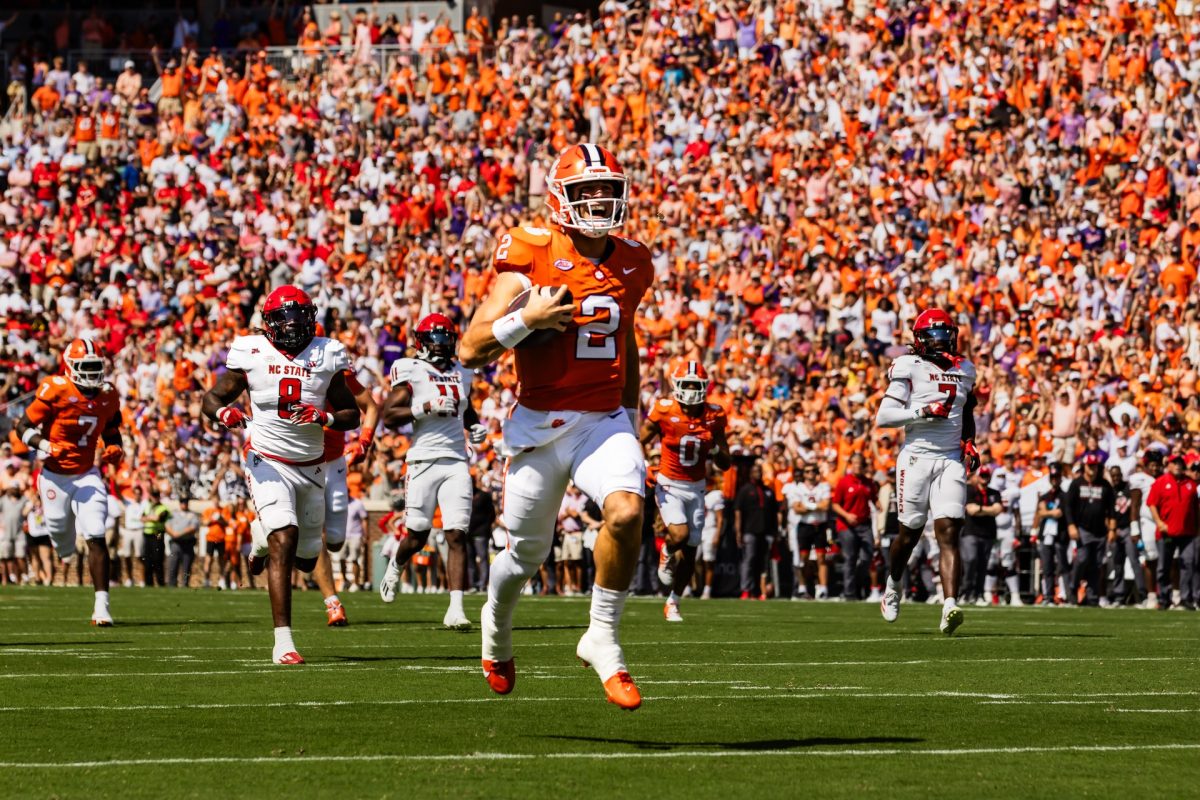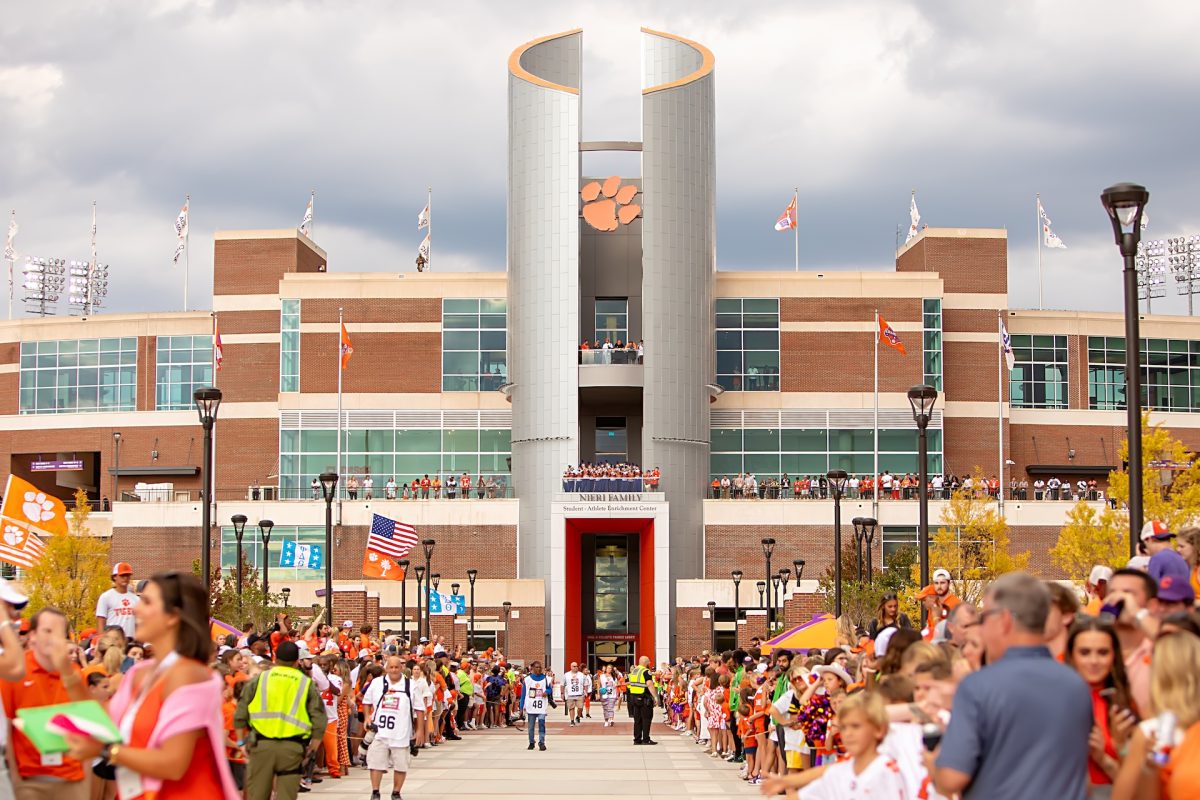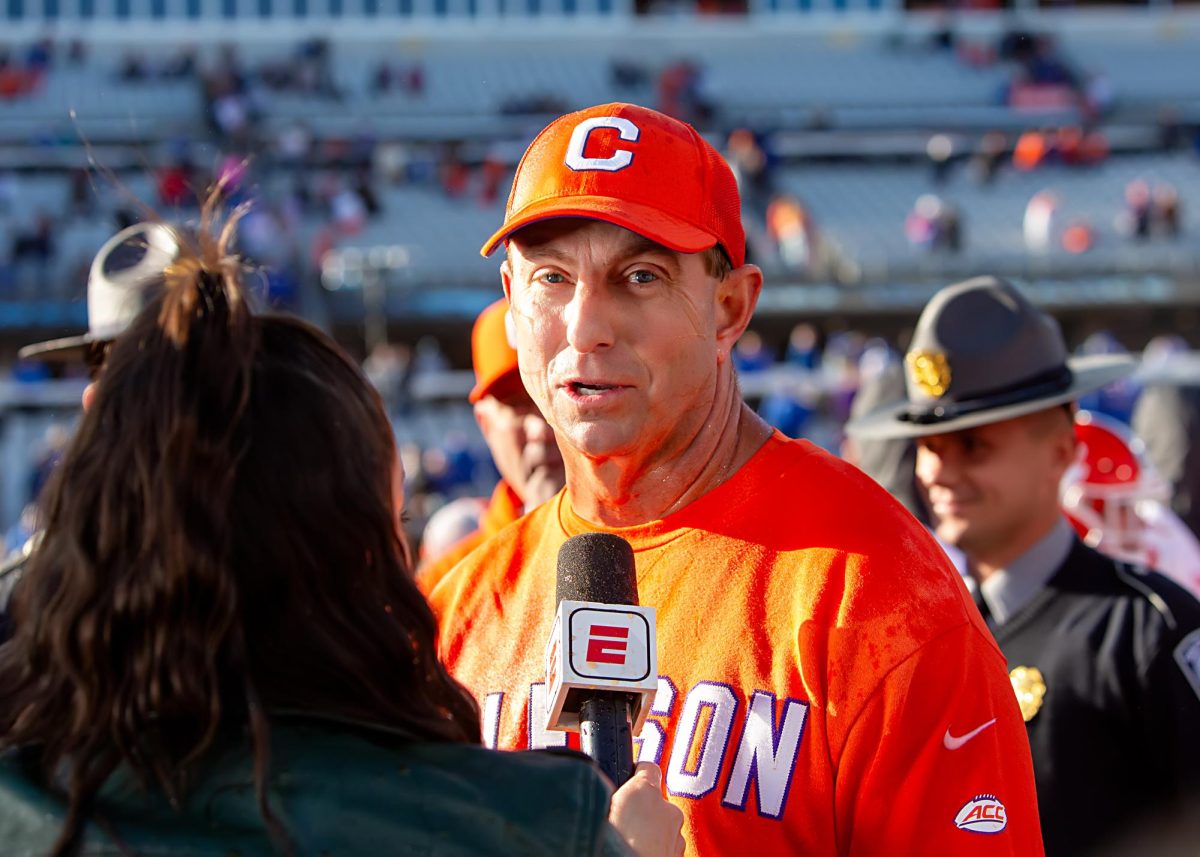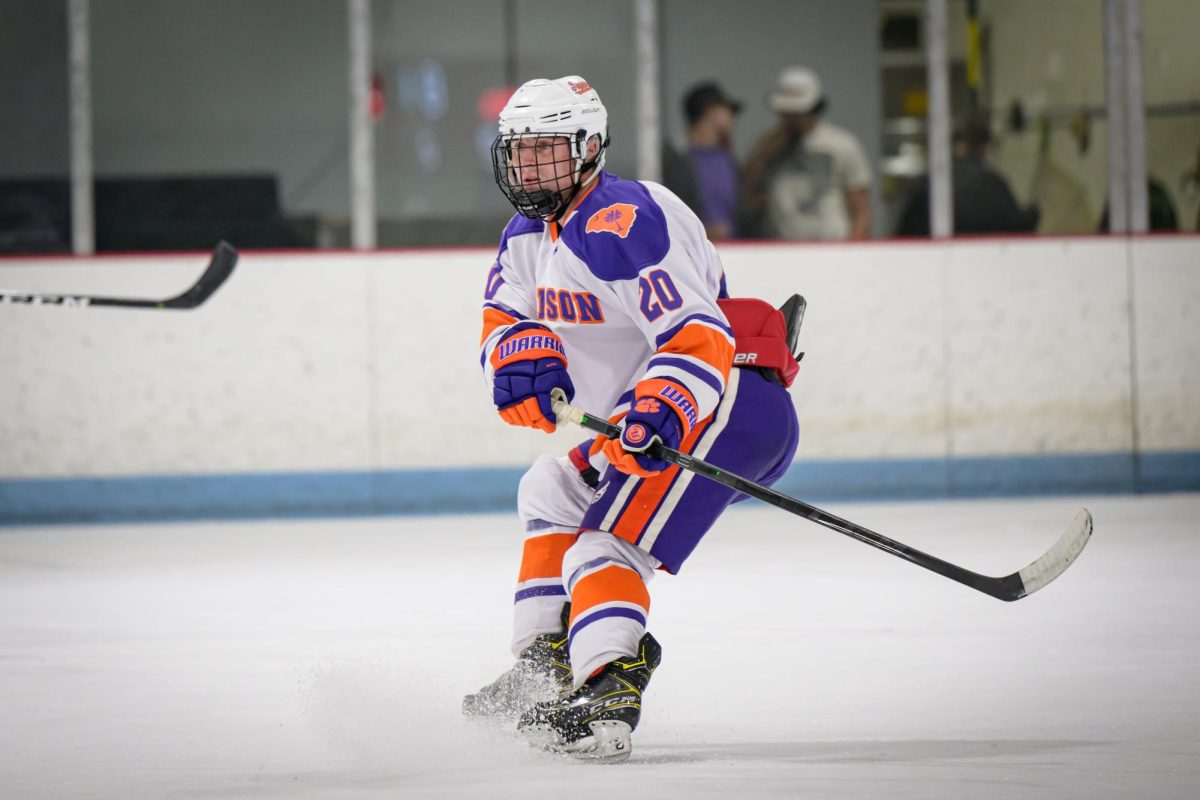July’s name, image and likeness (NIL) rule change for the NCAA was a monumental moment in collegiate athletics, but Clemson may be seeing the rule’s consequent effects four months later.
Following Clemson football’s win over Syracuse, Tony Elliot, the Tigers’ offensive coordinator, said he believes the NIL change could be a distraction for his players.
“I don’t know for a fact because I haven’t had those conversations. I know that guys are working on that in their spare time. It’s like anything else man, it’s just an added potential distraction. And even if you manage it well, it takes time,” said Elliot on Oct. 18.
With Clemson being a top-tier nationally known college football program for the past decade, it should not come as shocking news that its players have heavily benefited from endorsement deals.
Quarterback DJ Uiagalelei signed deals with Dr. Pepper and Bojangles over the summer, while defensive tackle Bryan Bresee partnered with Bojangles in August and a car dealership in September. Furthermore, many more Clemson football players and other Clemson athletes have benefited financially as well.
These deals and the fame that come with them could be a potential reason for Clemson football’s struggles this season, but a prominent attorney believes the NIL rule change is a step in the right direction for college athletics.
Frank Darras, a top disability lawyer in the United States, specializes in sports and entertainment disabilities and has been fighting for student athletes’ rights, including NIL.
In an interview with The Tiger, Darras discussed his professional work with athletes and his personal beliefs about the subject.
Darras, who raised two Division I athletes, saw dysfunction with his children’s athletic schedule and restrictions. He said they would constantly be preoccupied with academics or athletics that there was little free time to watch a movie or text a friend.
“My daughter was a great golfer, and my son was a great baseball player. And during the summer, they couldn’t earn a dime, that everybody else was out there earning over Thanksgiving or over Christmas. And it was just super, super hard,” said Darras.
With the NIL rule change, he sees a brighter future for student-athletes.
“We’re teaching our players and our athletes now, some life, some entrepreneurial skills and it’s broadening their educational development.”
Clemson Athletics has shown a similar level of support on their official NIL information page online.
“The Nieri Family Student-Athlete Enrichment Center has long been dedicated to the development of student-athletes off the field, and NIL is no different. Clemson has partnered with a number of internal and external educational resources to help prepare our student-athletes for success in this area.”
Clemson may support all student-athletes in having success with NIL, but that does not necessarily translate to actual success for athletes outside of football.
Back on July 20, Dabo Swinney, Clemson’s head football coach, reiterated that point and said he supported the rule change and mentioned the potential for inequality of opportunity.
“I’ve never had a problem with name, image and likeness. I think it should have been more. If I’d have been the czar, I’d have done it differently, because I don’t think everybody’s gonna have much opportunity with it. Some will. But not everybody will have opportunity,” said Swinney.
This difference of opportunity between athletes is difficult to determine as the financial details of endorsements are not typically disclosed. Still, there is a noticeable increase in endorsements and partnerships for Clemson football players than athletes from less-popular sports, such as softball or soccer.
Since football players are the ones receiving the most benefits from the NIL, it would make sense that they are the ones who are most likely to be distracted.
It will take time to determine if the NIL has definite adverse effects that coincide with its enactment, but Clemson football has not lived up to its expectations this season, and the NIL may be a part of the problem.
If one thing is certain, some athletes have benefited financially from the NIL more than others, and that high level of benefit may serve as a distraction for some players and teams.
Categories:
NIL serving as a potential benefit and distraction
Justin Robertson, Sports Editor
November 4, 2021
Lawton Hilliard, Contributor
A Clemson flag flies high during a football game against South Carolina State in Memorial Stadium on Sept. 11, 2021.
0
Donate to The Tiger
Your donation will support the student journalists of Clemson University. Your contribution will allow us to purchase equipment and cover our annual website hosting costs.








